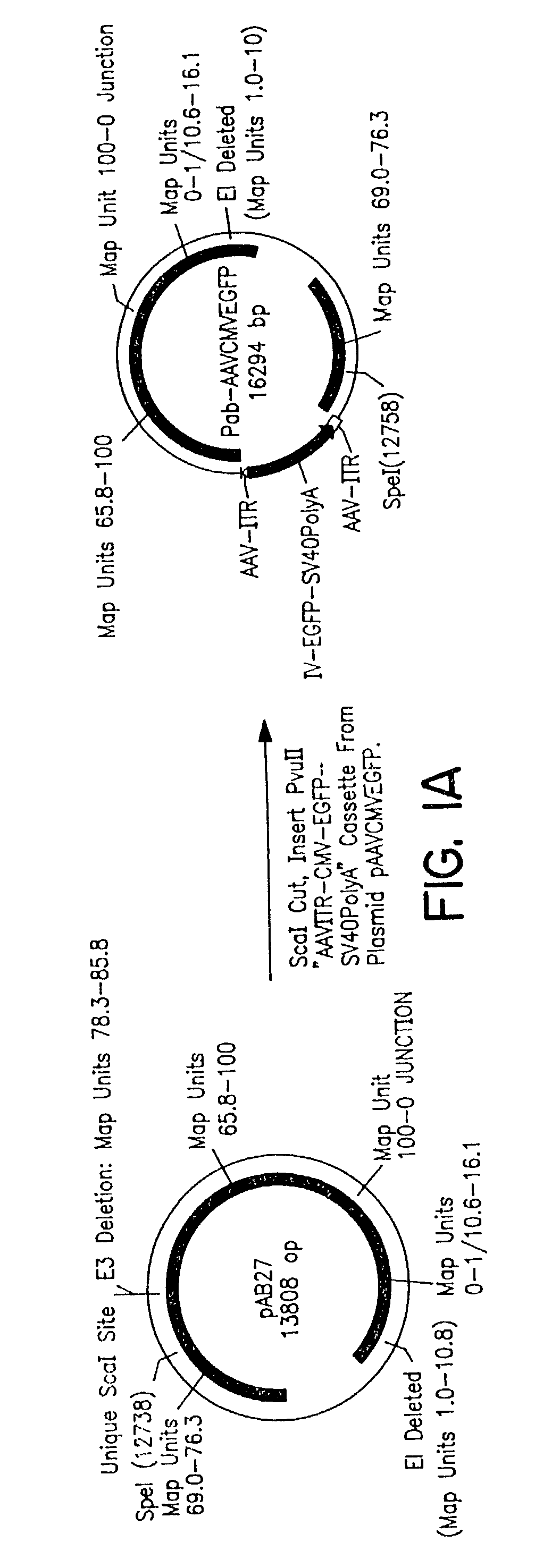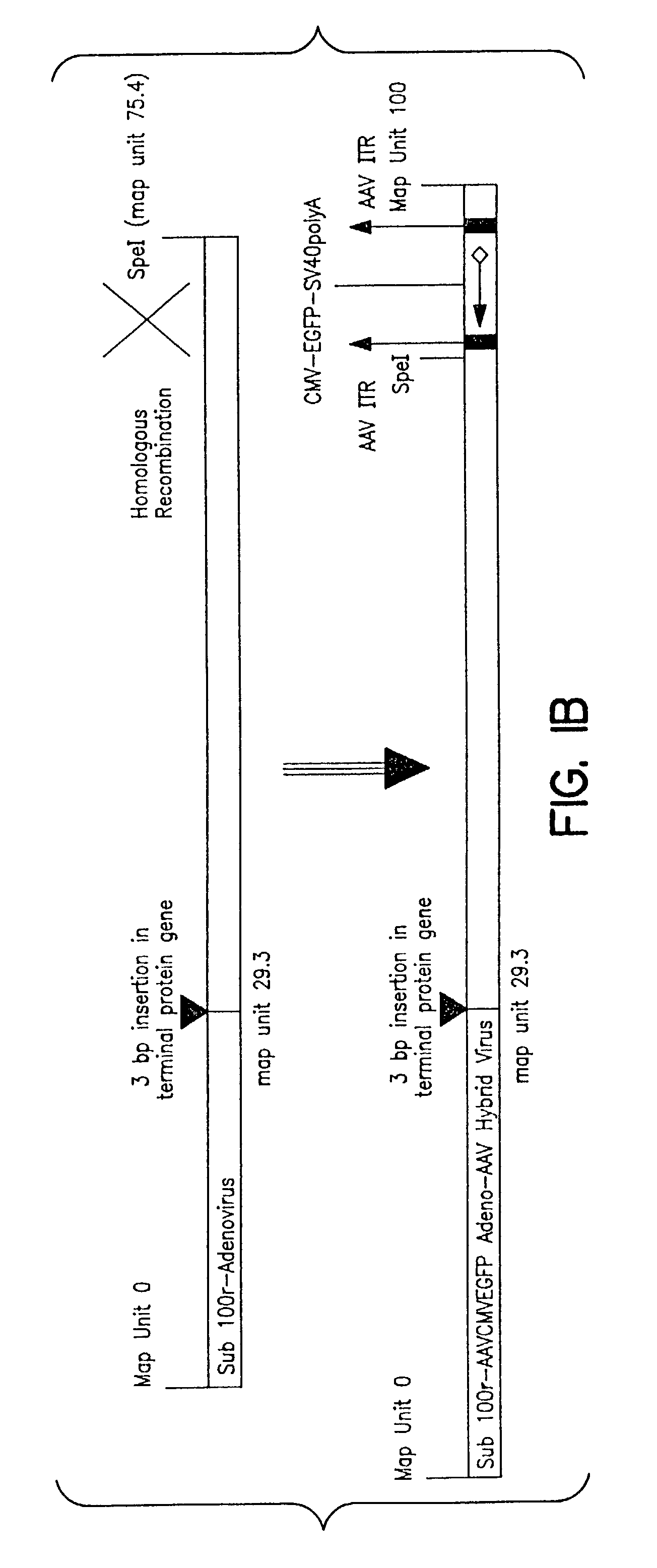Compositions and methods for helper-free production of recombinant adeno-associated viruses
- Summary
- Abstract
- Description
- Claims
- Application Information
AI Technical Summary
Benefits of technology
Problems solved by technology
Method used
Image
Examples
example 1
Use of the B-50 Cell Line and Ad / AAV Hybrid Vector for Production of a Helper Independent Cell Line
[0082]A recombinant Ad / AAV hybrid vector is constructed using the methods described in U.S. Pat. No. 5,856,152 except that the E3 gene is deleted and the E1 gene operably linked to and under the control of the RSV or PGK promoter is cloned into the E3 region of the adenovirus genome. The Ad / AAV hybrid vector is packaged as described in U.S. Pat. No. 5,856,152.
[0083]Briefly described, B-50 is a cell which stably expresses AAV type 2 rep and cap genes under the control of the homologous p5 promoter. This cell line is characterized by integration of multiple copies (at least 5 copies) of P5-rep-cap gene cassettes in a concatamer form into the host chromosome. This B-50 cell line was deposited with the American Type Culture Collection, 10801 University Boulevard, Manassas, Va. 20110-2209 on Sep. 18, 1997 under Accession No. CRL-12401 pursuant to the requirements of The Budapest Treaty on t...
example 2
Production of rAAV in B50 Cells by Replication Competent Ad-AAV Hybrid Virus
[0086]A rAAVCMVGFP genome in which a Green Fluorescent Protein (GFP)reporter gene is driven by CMV promoter and flanked by AAV2 ITRs was cloned into the E3 region of an AdS mutant, sub100r virus. The E2b terminal protein gene of sub100r was disrupted by a 3 bp insertion, rendering a temperature sensitive phenotype. The resulting recombinant Ad-AAV hybrid is a genotypically wild type for E1, E2a, E4 and VARNA genes but its E3 genes are now replaced with a rAAVCMVGFP genome. Thus this second generation Ad-AAV hybrid possesses all essential helper genes and a rAAV genome and, theoretically, a single infection of B50 cells with the virus should lead to rescuing, replicating and packaging of rAAV genomes.
A. Construction of a Replication-Competent rAd-AAV Hybrid Virus
[0087]A commercially available plasmid construct pAB27 was purchased from Microbix Biosystems (Ontario, Canada). It carries the following segments of...
PUM
| Property | Measurement | Unit |
|---|---|---|
| Temperature | aaaaa | aaaaa |
| Time | aaaaa | aaaaa |
| Temperature | aaaaa | aaaaa |
Abstract
Description
Claims
Application Information
 Login to View More
Login to View More - R&D
- Intellectual Property
- Life Sciences
- Materials
- Tech Scout
- Unparalleled Data Quality
- Higher Quality Content
- 60% Fewer Hallucinations
Browse by: Latest US Patents, China's latest patents, Technical Efficacy Thesaurus, Application Domain, Technology Topic, Popular Technical Reports.
© 2025 PatSnap. All rights reserved.Legal|Privacy policy|Modern Slavery Act Transparency Statement|Sitemap|About US| Contact US: help@patsnap.com


